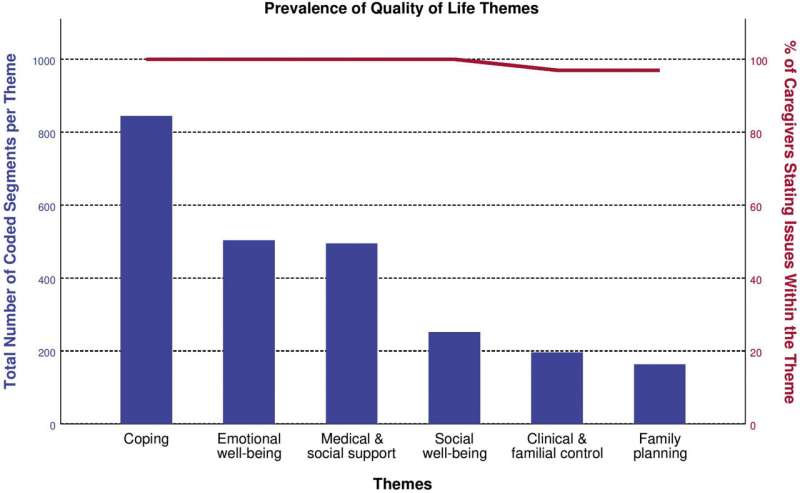Focus on childhood glaucoma caregivers

Even with more advanced treatments and early intervention, caregivers of young people living with childhood glaucoma face profound challenges with no cure or way to reverse the damage—and always facing the prospect of their child losing their sight.
The new Flinders University study found high levels of anxiety, fear and initial shock among caregivers, some of whom have been diagnosed with genetic glaucoma themselves.
Childhood glaucoma describes a group of rare conditions affecting approximately 1 in 30,000 children across Australia. It is largely a genetic condition, with almost 40% receiving a genetic diagnosis.
"At the start, diagnosis of the childhood condition (at birth or up to 18 years) can be stressful or traumatic experience for caregivers," says ophthalmology researcher Lachlan Knight in his Ph.D. study of 35 primary caregivers of childhood glaucoma cases.
"Caregivers face a number of psycho-social wellbeing risks—from feelings of guilt and regret about their child's delayed diagnosis to fear and anxiety related to medical and social support, and later loss of control as their child develops medical autonomy," he says in an article in Ophthalmology Glaucoma
"This study raises concerns for caregivers' quality of life, even though many of them develop positive coping strategies to manage their responsibilities."
Study participants are quoted as saying: "When she was born and got the diagnosis … I kind of shut off from her. It was too painful … " and "I felt very helpless because I couldn't get answer to questions … Would she have any eyesight after all this was over?"
More support and strategies for managing caregiver burden are required, including social as well as medical support, the South Australian researchers say, adding a diagnosis could affect families' family planning decisions.
Genetic counseling was sought by 57% of caregivers to understand their risk of passing on any genetic variants that may cause glaucoma in their child.
Seeking social and professional support groups and systems was the most common strategy, commencing with help from partners and parents, and also through open communications with their child and friends about their experiences.
Along with guilt, some caregivers expressed frustration at lack of awareness and knowledge of childhood glaucoma from health care professionals or peers. Almost half of respondents spoke of feeling overprotective of their child's health, regardless of the age of the child or vision status.
More information: Lachlan S.W. Knight et al, The Caregiver Experience in Childhood Glaucoma, Ophthalmology Glaucoma (2022). DOI: 10.1016/j.ogla.2022.02.005




















